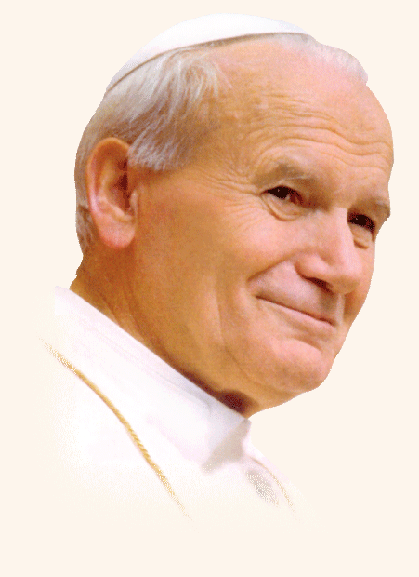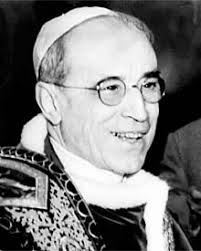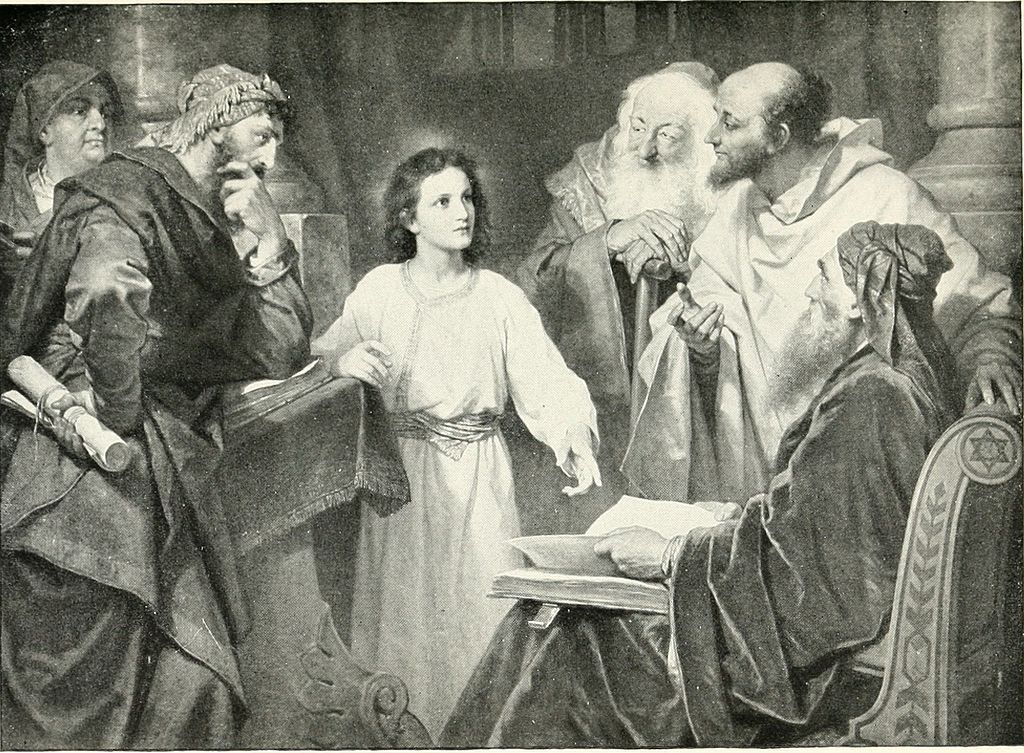|
To work for the proper implementation of canon law is to play an extraordinarily constructive role in continuing the redemptive mission of Christ. Pope John Paul II |
|
6 may 2018 |
Research links
|
Related
Society of St. Raymond, here. |
|
Overview
|
Pope John Paul II on the importance of canon law and lawyers in the Church
Excerpts from Pope John Paul II's “Message to the Ottawa Conference on Canon Law”. For complete text, see Communicationes 16 (1984) 125-127.
|
|
John Paul II is not considered a "jurist-pope" in the tradition of Innocent III, Benedict XIV, or even Pius XII, but he had more than a passing familiarity with canonical research. Besides promulgating the 1983 Code of Canon Law (in the drafting of which he showed active interest upon becoming pope in 1978), a young Bp. Karol Wojtyła published a solid scholarly study of a famous section in Gratian. See "Le Traité De poenitentia de Gratien dans le l'abrégé Gdansk Mar. F. 275", Studia Gratiana 7 (1959) 355-390.
|
The new Code of Canon Law is extremely necessary for the Catholic Church. Since the Church is established as a social and visible structure, it must also have norms in order that:
• its
hierarchical and organic structure be apparent;
• the
exercise of the functions divinely entrusted to it, especially
that of sacred power and of the administration of the
sacraments, be adequately organized;
• the mutual relations of the faithful be regulated according to justice based upon charity, with the rights of individuals guaranteed and well-defined;
A true understanding of the role of Canon Lawyers within the
ecclesial community can follow only from an appropriate
consideration of the purpose of the law itself and of the Code
that enshrines it. My apostolic constitution “Sacrae disciplinae
leges” [¶ 16] points out, the purpose of the Code is “to
create such an order in the ecclesial society, that, while
assigning the primacy to love, grace and charism, it at the same
time renders their organic development easier in the life both of
the ecclesial society and of the individuals persons who belong to
it.” In this sense the Code is an “indispensable instrument”
of the Church’s life and vitality.
To work for the proper
implementation of the Code is to work for the upbuilding of the
Church herself. It is to work for the salvation of the world. It
is to play an extraordinarily constructive role in continuing the
redemptive mission of Christ himself.
(Emphasis added.) Canon Lawyers must be aware of their grave
responsibilities in the task of consolidating the life of the
Church at every level, according to the spirit of the Gospel,
overcoming uncertainties and banishing laxity in the observance of
a discipline that, by reason of its ordination to the life and
mission of the Church, is truly sacred and salvific.
I wish therefore to express my admiration for the invaluable contribution that Canon Lawyers are making to the pastoral and apostolic mission of the Church. As I have stated on other occasions, the 1983 Code is the last major document called for by the Second Vatican Council. With its promulgation we have reached a new stage in the task of bringing about that interior renewal which the Council intended and for which we continue to “work and pray”. May all canonists persevere in the vital work that lies before them, as generous servants ever willing to follow the Holy Spirit’s lead, as faithful stewards seeking to place their talents and gifts fully at the service of the Father’s will...
|
|
Some remarks of Pope Pius XII to law students, from The Catholic Lawyer 2 (1956) 335.
|
Remember that you are embarking on a career that requires a true vocation . . . You will have to travel slowly along your chosen path in order to acquire the experience necessary to teach you how to use in practical life the abstract principles contained in the legal texts and scientific works you have studied. It is a career that demands continuing application and study, for it will impose responsibilities on you by which you will be obligated in conscience, and of which someday you will be required to account before the tribunal of the Eternal Judge.
Your vocation to the practice of the Law will require of you spiritual integrity and moral uprightness, so that your profession will not be merely an instrument for acquiring wealth or influence, but a kind of priesthood dedicated to the ideals of the good and the just, although at times it will be easier and more materially rewarding to stray into the path of corruption and untruth. It is a vocation, finally, in which you can never for a moment lose sight of the universal rule of human conduct which is the moral law, beyond whose limits you must never trespass.
If you wish a single recommendation which might summarize all We are seeking to convey to you, We will tell you that over and beyond all of the studies in your specialized fields of concentration, you should attempt to cultivate and form your minds in the spirit of the Eternal Truth which is the foundation of all Law and of all justice.
|
|
Materials on this website represent the opinions of Dr. Edward Peters and are offered in accord with Canon 212 § 3. This website undergoes continual refinement and development. No warranty of completeness or correctness is made. Dr. Peters' views are not necessarily shared by others in the field nor are they intended as canonical or civil advice.
CanonLaw.info Homepage & Site Directory / Help support CanonLaw.info / Original Materials © Edward N. Peters |






